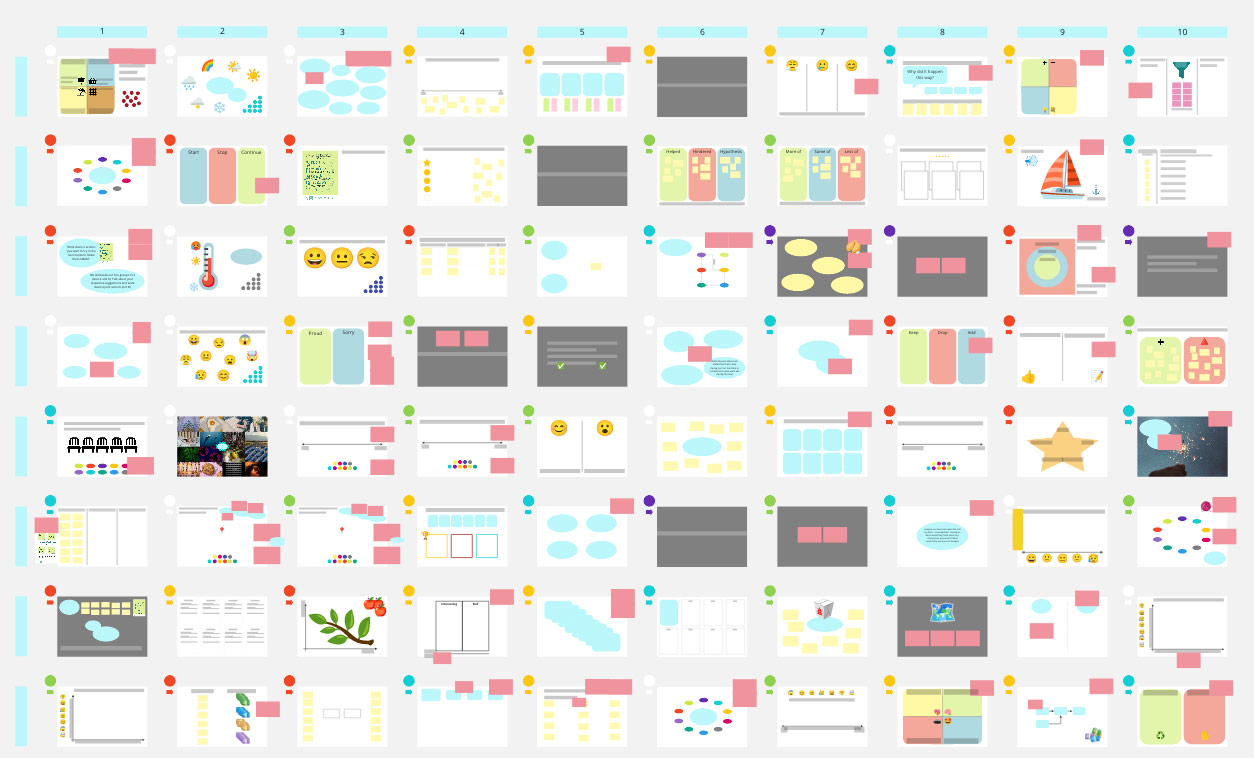Brainwriting
(#66)
Written brainstorming levels the playing field for introverts
Source:
Prof. Bernd Rohrbach
Pose a central question, such as 'What actions should we take in the next iteration to improve?'. Hand out paper and pens. Everybody writes down their ideas. After 3 minutes everyone passes their paper to their neighbour and continues to write on the one they've gotten. As soon as they run out of ideas, they can read the ideas that are already on the paper and extend them. Rules: No negative comments and everyone writes their ideas down only once. (If several people write down the same idea, that's okay.)
Pass the papers every 3 minutes until everyone had every paper. Pass one last time. Now everyone reads their paper and picks the top 3 ideas. Collect all top 3's on a flip chart for the next phase.



